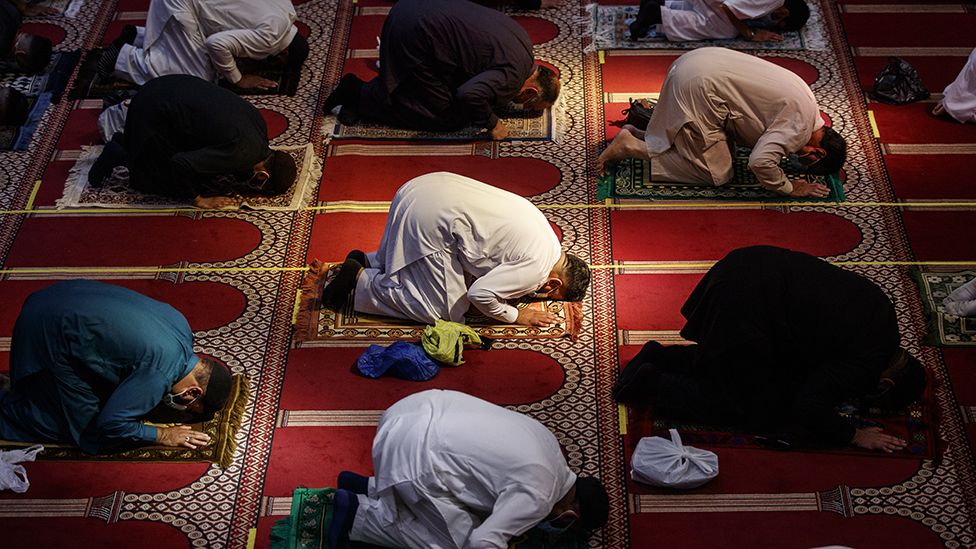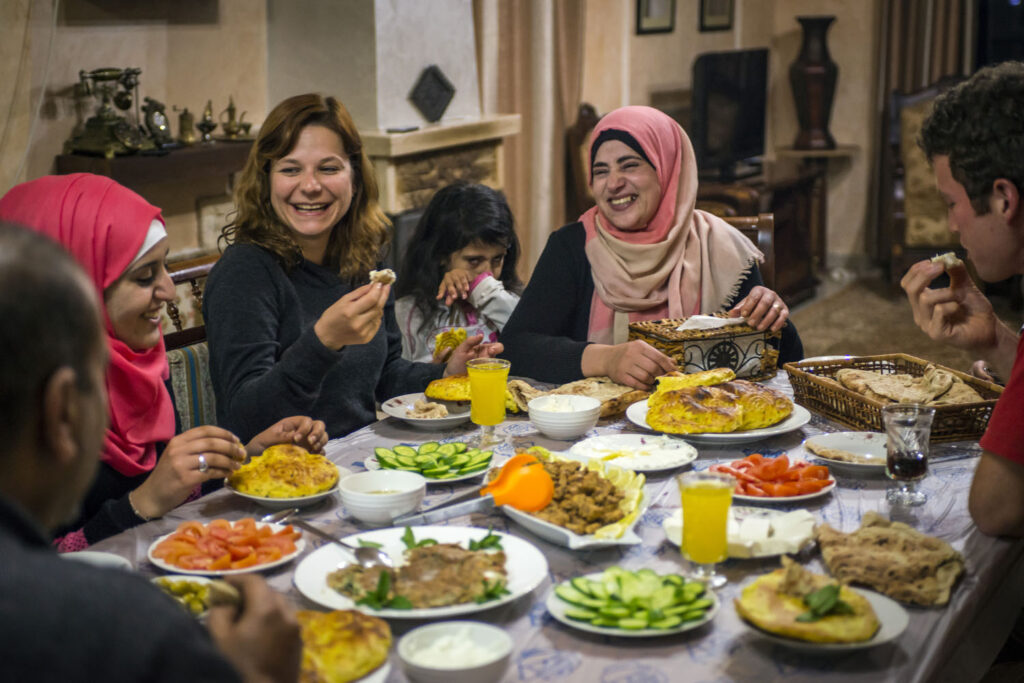By Konstantina Kerpinioti,
Knowledge and contact with the morals, customs, and traditions of people from other countries are extremely essential, as it broadens our horizons and cultivates us at the same time. Also, familiarity with the traditions of other countries and religions teaches us to respect and accept diversity. For all these reasons, I decided to write about Ramadan, which is a celebration of special value for Muslims.
What is Ramadan?
Ramadan is the religious holiday of Muslim fasting, as well as the name of the ninth month of the Muslim year, in which, according to tradition, the Quran was given to people in order to guide them in life. Ramadan is considered to be one of the Five Pillars of Islam and is characterized by obedience, atonement, and prayer to God. Ramazan lasts about a month. This year, Ramadan has already begun (April 1st), as it is supposed to end on April 30th.
How do Muslims fast?
In this one month of Ramadan, most Muslims abstain from food and water from dawn (İmsak) until sunset (ifṭār) every day. Nevertheless, not consuming food and water is not enough. Muslims should also abstain from smoking, coffee, chewing gum, and sexual intercourse. In addition, quarrels in the streets, curses, and gossip are strictly forbidden during the Ramadan period. Moreover, they are encouraged to attend all five prayers of the day and read the Quran just before the end of the fasting every day. Before dawn, Muslims eat a meal called suhūr that combines superfoods, allowing them to remain fully energetic until night.
Why do Muslims fast?
Ramadan consists of one of the Five Pillars of Islam. It can easily be explained metaphorically in the sense of “imposed poverty”, which is recommended by Islam in order to establish equality between people through abstinence from food, drink, and bodily pleasures. During the Ramadan period, Muslims are encouraged to do good deeds and benefit from the values of Ramadan. Specifically, Muslims are used to providing the homeless with food and financial support and serving charitable purposes. The purpose of fasting is to bring believers closer to God. Fasting is also an exercise through which people learn to control themselves. It is a way to detoxify from harmful habits that happen on a daily basis, such as smoking. Many Muslims dress more modestly during Ramadan and spend much more time in mosques.

Fasting meals
Many times, Muslims are left without food and water for 17 hours — an extremely long period of time. Only when the sun goes down are Muslims allowed to eat and drink. The two main Ramadan meals are suhūr (“pre-dawn meal”) and ifṭār (“breakfast”). These meals incorporate dates. Nowadays, during the ifṭār, Muslims are allowed to consume whatever they desire apart from alcohol and pork meat, which are strictly banned by the Quran. The ifṭār usually turns into a celebration.
How does fasting end every day?
Nowadays, Muslims “break” their fasting by drinking little water and eating a few dates as soon as the sun goes down every day of the month of Ramadan. With the ending of the sunset prayer, Muslims gather with relatives and friends in the ifṭār, which is a major social event in the Arab world, with many mosques and charities organizing group dinners and setting up tables and kiosks in squares and parks, offering free food to Muslims every night during Ramadan.
What does suhūr contain?
Suhūr is consumed at night, and it must be a light meal so as to prevent any kind of illness. For example, an appropriate suhūr meal incorporates whole grain bread, low-fat cheese, bananas, dates, almonds, water, yogurt, fruits, and honey. A big amount of coffee, tea, salt, and fried foods is not recommended.
Who is fasting?
- Muslims in religion
- Adults
- Mentally healthy people
- Physically healthy people
- People who do not travel a lot
- Women when they do not menstruate.
Who is excluded from fasting?
- Ill people
- Hikers
- Old people (but they have to offer food to a poor person every day that they do not fast)
- Patients who are not expected to recover (like the old people, they have to offer food to a poor person for each day that they do not fast)
- Pregnant women and those who are in the stage of breastfeeding.

Are the rules of fasting the same everywhere? Do all Muslims fast in the same way? Why is Ramadan celebrated at a different time each year?
Ramadan is obligatory for every Muslim and there is no difference in the rules. The time period varies because the month of Ramadan is calculated based on the lunar calendar and shifts back 10 days each year.
How is Ramadan concluded?
The end of Ramadan is celebrated with a three-day period called Eid al-Fitr or “Feast of Breaking the Fast”, which begins with a special prayer early in the morning and continues with celebrations, rich tables, and the distribution of gifts and money to children. When the first crust from the New Moon becomes visible, the month of Ramadan ends, and the month of Saul begins.
Is it easy to get back into the routine after Ramadan, and how many people reach for the excessive consumption of food and drink to make up for what they have been deprived of?
Returning to normal life is not a problem for Muslims, because they eat as much as they need. There is nothing they have lost because everything is making up for it between the ifṭār and suhūr.
In which countries is Ramadan celebrated?
Ramadan is celebrated in countries that have Muslim populations, such as Indonesia, Pakistan, Bangladesh, Nigeria, Egypt, Turkey, Iran, and the USA (a percentage of residents in some states are Muslims).
References
- Το Ραμαζάνι και οι 10 πιο συχνές ερωτήσεις για τη νηστεία, balkon3.com, Available here
- Ραμαζάνι, η «σαρακοστή» των μουσουλμάνων. Οι πιστοί απέχουν από φαγητό, νερό και σωματικές απολαύσεις από το πρωί έως το βράδυ. Ποιοι εξαιρούνται, mixanitouxronou.gr, Available here
- Τι ακριβώς είναι το Ραμαζάνι; Όλα όσα πρέπει να ξέρετε για την μεγαλύτερη γιορτή των Μουσουλμάνων, huffingtonpost.gr, Available here
- Ramadan, history.com, Available here
- Πότε Πέφτει το Ραμαζάνι 2022, coolweb.gr, Available here




